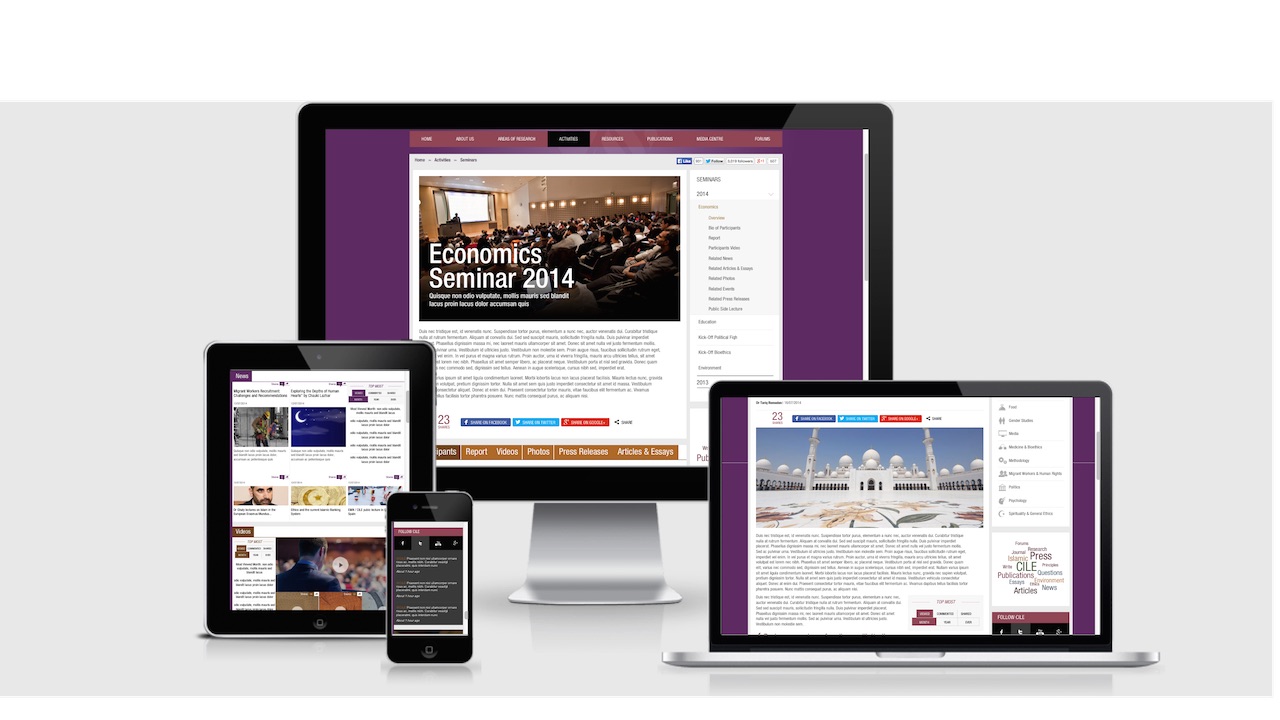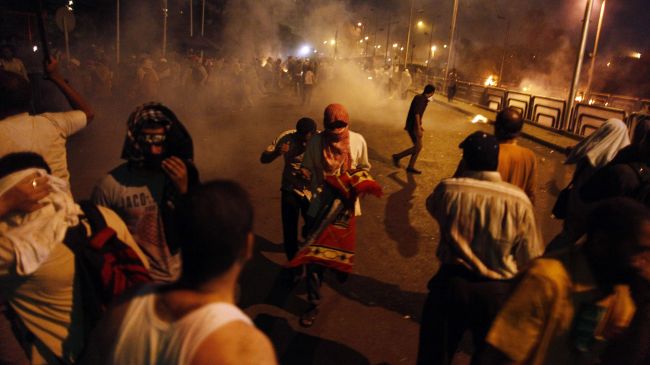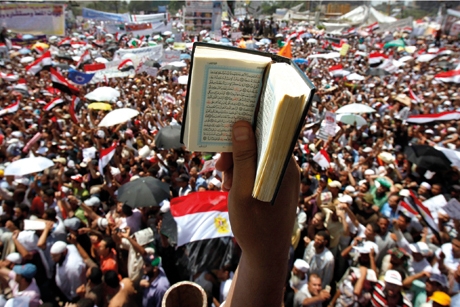What we are witnessing are struggles over power and religious authority that will have a lasting impact on the future of the Middle East
The demonstrations that erupted in Egypt, spread to Libya and then to other Muslim-majority countries, from Pakistan to Indonesia, leaving a trail of violence and death. Diplomats and civilians have been murdered, there has been violent rejection and hatred of the US and tensions are still running high. So is a clash of civilisations, a conflict between the West and Islam, on the agenda?
While the Arab uprisings of the last two years seemed to show that Middle-Eastern society as a whole cherished such values as freedom, justice and democracy, today, the wave of violence sweeping the Islamic world points to quite the opposite. Because of an islamophobic and racist video, Muslims have suddenly taken leave of their senses to vent their hostility towards the US and its government (which is not responsible for the video in question). During a recent visit to the US, intellectuals and journalists asked me: “Haven’t we been misled, during the Arab awakening, into thinking that Muslims could actually embrace democratic ideals?”
It cannot be repeated often enough: Beyond the media coverage that magnifies events, those who take part in violent demonstrations are a tiny minority. It would be wrong to imagine that a few thousand violent demonstrators represent Muslims, when millions took to the streets in a disciplined and non-violent manner to bring down dictatorships.
Violence against embassies and civilians must be categorically condemned. At the same time, we must attempt to understand why such events occur. Above and beyond the sincere sense of humiliation widely shared by Muslims who feel insulted and belittled by the video, there exist deeper issues within Muslim-majority societies that cannot be avoided. Over the last five years, Salafist (or Wahhabi) groups have become much more visible, active and politicised as they seek to play a determining role in their countries’ future. The Afghan model — when such organisations supported the original Mujahideen against the Soviet Union in the 1990s — may now be replicating itself in Egypt, Tunisia and Libya, in northern Mali and even in Asia. A minority has turned towards more radical groups (known as salafist jihadists), as in Mali, but the majority has insinuated itself into mainstream politics, quick to promote a form of religious populism that plays on emotions, demonises the West — above all the US ¬— and actively undermines the democratic process, as in Tunisia and Egypt.
The Salafists were the first to call for demonstrations, even before violence flared. The same pattern could be observed in Lebanon, where Hezbollah’s Shaikh Hassan Nasrallah brought his followers into the streets, attempting to surmount the division between Sunnis and Shiites by showing that the latter were just as dedicated to Prophet Mohammad (PBUH) and at the same time bidding to seize the leadership of opposition to the US in defence of pan-Islamic dignity.
What we are witnessing are struggles over power and religious authority that will have a lasting impact on the future of the Middle East. Between the Sunnis themselves (literalists, reformers, Sufis, etc.) and between Sunnis and Shiites, there are deep divisions that could, with a single spark, become a conflagration.
A new form of populism is being used to mobilise the crowd, to feed into and direct its fury. We must realise, while never justifying violence, that the people of the Global South, whose lives are warped by political and social frustration, can easily be carried away by raw emotion. Poverty, unemployment, corruption and violence are their daily lot, against which they resist by invoking their religion. And now, those whom they perceive as the privileged citizens of the West mock their faith and ridicule the figure of the Prophet (PBUH) — an object of love and reverence. It should not be too difficult to understand why certain groups are tempted to encourage their co-followers to reject the West. During recent controversies in Denmark, the Netherlands and the US, the Muslim citizens of those countries expressed their dismay in a calm and democratic manner. Socio-economic factors make it easier to understand these troubles. Blaming Islam and the Muslims do not.
We must face the reality. The majority of Muslims in the Global South have a negative image of the US and of the West. They do not express their feelings through demonstrations or violence (which are, I repeat, the work of a minority), but a deeply rooted lack of trust persists. Many Americans are surprised, for they believed that they had supported the Arab people during their recent uprisings. But Arabs have a stronger memory and a broader view. For decades, the US supported and protected dictators. The situation in Iraq and Afghanistan remains critical. American policy has created and continues to create profound animosity. The humiliating treatment of prisoners at Abu Ghraib and Guantanamo Bay, which has remained open despite the promises of Barack Obama, is engraved in memory.
America’s permanent and unilateral support for Israel is another reason for this massive lack of trust. Whatever the president’s initial good intentions, Arabs have been left with the impression that the Zionist lobby is too powerful and that friendship extends no farther than fine words and pious wishes. For more than 70 years now, the US has acted unilaterally in pursuit of its interests and its national security in the Middle East, defended Israel unconditionally and exploited the Arab countries and their people.
American and European policies are fraught with contradictions — both are facing increasingly serious challenges. Their main regional economic allies remain Saudi Arabia, Qatar and Bahrain, whose religious institutions finance the self-same Salafist organisations that promote anti-Americanism on the streets of Cairo and Tunis. As the region enters an era of democratic transition, it may well be that anti-American emotions have peaked.
These emotions are nothing new; but the world has changed. New economic actors like China, India, Russia, Brazil, Turkey and South Africa are moving into the Middle Eastern market. As the world’s economic centre of gravity shifts eastward, the prospects of the US, Europe and Israel are anything but encouraging. Looking beyond the violent acts of a handful, the American administration would be well advised to examine why the Arab people reject it and attempt to develop more coherent and better-balanced regional policies.
The danger is real: In the face of competition from China, India, Russia or other emerging powers, America may be unable to halt its downward spiral. Presidential candidate Mitt Romney’s incoherent rhetoric and murky political programme promise to accelerate the decline. Nor has President Obama, with his verbal eloquence, been able to stop the slide. The Arab world is seething; a new era has begun. This is the backdrop against which the US administration must assess its certainties, its choices, its priorities, and — most urgently — its friends.









